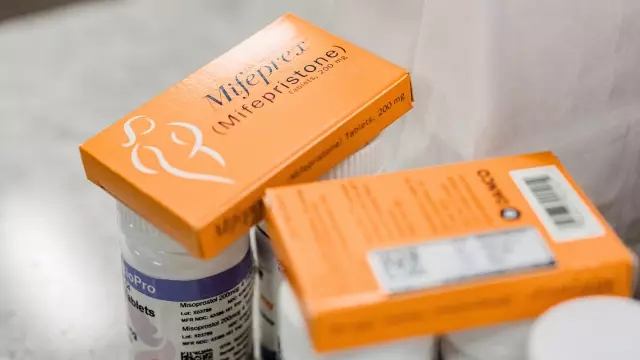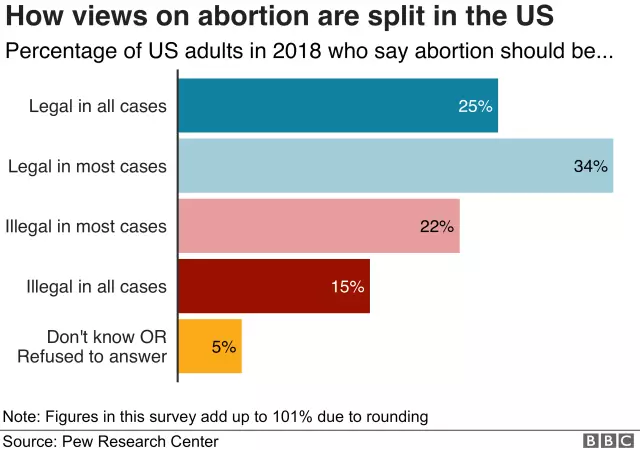- Author Rachel Wainwright wainwright@abchealthonline.com.
- Public 2023-12-15 07:39.
- Last modified 2025-11-02 20:14.
Abortion at 7 weeks
Abortion is a method of terminating a pregnancy using special medicines or surgery.

An abortion at the 7th week of pregnancy is legally allowed to be carried out at the request of a woman. An abortion at 7 weeks is most often performed by a surgeon. A mini-abortion (vacuum abortion) can also be performed at this time. The method of termination of pregnancy is selected taking into account the general condition of the patient, the duration of pregnancy, the absence or presence of chronic diseases.
Medical abortion at 7 weeks pregnant
Medical abortion is a non-surgical termination of pregnancy with special medications. At the 7th week of pregnancy, a medical abortion will relieve young girls who have not yet given birth from the need for surgery. This type of abortion is one of the most gentle and safest modern methods of abortion.
Before the abortion, the patient needs to do general clinical tests, vaginal bacterioscopic smear, ultrasound. Research is necessary to establish the exact duration of pregnancy and the location of the ovum in the uterine cavity. The doctor must rule out the development of an ectopic pregnancy. With this type of interruption, the dosages and regimens of natural medicines must be carefully followed.
After the abortion at week 7, the state of the uterus is assessed, the discharge from the genital tract is monitored and diagnosed, the general clinical condition of the woman. At any stage of pregnancy, with a Rh-negative blood count, measures are taken to prevent Rh sensitization.
Misoprostol, Mifepristone, Methotrextat can be used for abortion. These drugs act differently on the woman's body.
Mifepristone is given vaginally with prostaglandin. The introduction of this tool gives a 94-95% guarantee of a complete abortion. With the introduction of Mifepristone, vomiting, nausea, prolonged bleeding, and intestinal disorders may occur.
The drug Methotrexate is administered to the patient intramuscularly. After intramuscular injection of the drug, a selected prostaglandin is injected five days later. The effectiveness of this method of abortion is about 90%. The disadvantages of this method of interruption include the fact that it can take up to several weeks between the administration of the drug and a complete abortion.
Vacuum abortion
At 7 weeks, abortion is sometimes done with manual vacuum aspiration. With this method of abortion, the uterine cavity is completely absorbed with a special syringe.

This procedure should be performed under local anesthesia on an outpatient basis. Before the procedure, the patient is given Misoprostol to relax the cervix and then oxytocin to contract the uterus.
During the procedure, the patient may experience nausea, increased sweating and weakness. To completely cleanse the contents of the uterus from residues, the doctor can continue the procedure using a thin metal rod with a loop at the end.
After the procedure, the patient must stay in the hospital for some time. Ibuprofen and acetaminophen can be used to relieve pain. If there are no signs of abortion complications, you can leave the hospital about an hour after the operation.
There may be moderate bleeding two weeks after this procedure. During the week after the abortion, you should not do douching and use tampons.
Two weeks after the procedure, the woman must undergo a medical examination to make sure that the abortion at week 7 was without complications. Vacuum abortion is safer than surgical abortion. This type of abortion does not use metal instruments that can seriously damage the uterine cavity.
Found a mistake in the text? Select it and press Ctrl + Enter.






